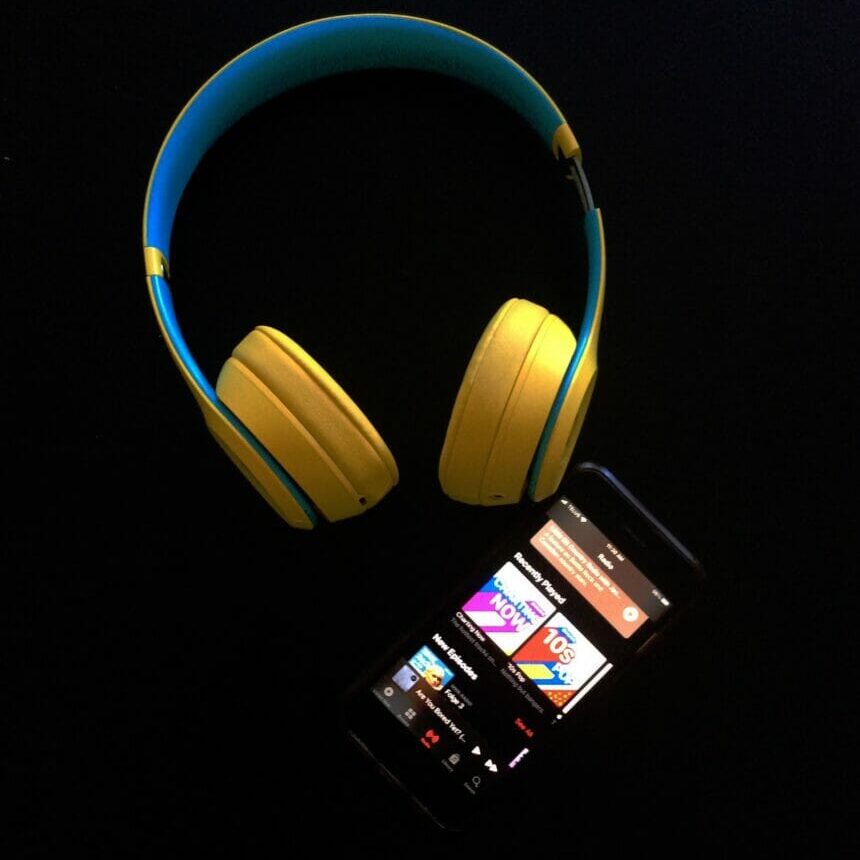
The impossible quest for a modern music legend
Modern music delivery is making sure modern artists won’t be remembered
The Weeknd will never be John Lennon. Not because music has changed but because we have.
Today, we have an endless supply of music at our fingertips. Streaming services like Apple Music and Spotify provide access to a variety of options at the touch of a screen. For those who prefer the experience of vinyl, ordering online is almost as easy. As the music industry grows, so do our options to engage with it.
Limitless listening
Music choices were once limited by what we could afford, what we had access to and what we deemed worthy. Now music choices are limitless.
I have always been able to listen to any music with little thought to where it comes from. If I don’t like a song, I skip it, forget it and go on to the next. It hasn’t always been this way.
For students of the past, getting music was an experience. In 1963, when the Beatles released their first studio album, music was mainly accessible through radio, vinyl records, live shows or the occasional busker hustling on a busy street.
While the cassette appeared on the scene in 1958, it didn’t become mainstream until the ‘70s. To listen to a song, one either settled for what was playing on the radio or went to the closest music store. Both options were played without skipping songs. No forgetting and moving on to the next track. Songs became familiar through repetition.
Maybe these limits are what make music from the ‘60s, ‘70s and ‘80s so timeless. It allowed popular artists to not only be successful but also unequaled.
Lennon is often viewed as one of the greatest musicians of all time. He transcends generations, still influencing musicians today. The 2021 summer Olympics in Tokyo opened to Lennon’s Imagine, sung by multiple icons, including John Legend and Keith Urban.
This makes me wonder when the last time was that I sat down and really listened to an album from beginning to end.
Vinyl vs. Apple Music
When music was listened to on records, if it wasn’t a mix of greatest hits, it was often one album from one artist. Music lovers of the ‘60s purchased an album based on its entirety. Maybe that’s one reason the greats are great, they were worth the commitment of a single selection and the time spent consuming that selection.
I feel like now, this commitment to music has vanished. All we really commit to now is a streaming service offering endless music possibilities for a low price of $9.99 and maybe our mother’s maiden name.
These services give us privileges unavailable to prior generations. We can easily discover new artists and new genres without even leaving home.
This begs the question, if streaming services didn’t exist, who would we listen to?
Chart-topping artists of today like the Weeknd, Justin Bieber, Ariana Grande or Olivia Rodrigo might not be as successful as they are today.
Held to the same values as fine art and book collections, could music collections be seen as an extension of the listener? Could the searching, finding and curating of those collections make the music more special to us as listeners?
For me, scrolling through the curated library of music I have on my phone will never be as gratifying as going through someone else’s tangible music collection.
Making a legend
Maybe the point isn’t whether artists of today are as successful as artists like Lennon. But whether they can become timeless like him.
For someone’s music to transcend generations, an artist needs to engrain themselves in the minds of millions.
For early listeners of Lennon and the Beatles, this was probably easy because they listened to the album in its entirety. Maybe they went on to tell their friends how great it was, or shared it with them in person, playing the record together.
When we listen to artists like the Weeknd, we have the option of listening to a minute and a half of a song and skipping to the next one. I’d tell my friends what I thought, but I’d probably forget it by the next track. I could send them a song through messenger, but it could get lost in conversation by the time they got around to listening to it.
Just as The Buggles believed, video killed the radio star, I have to wonder if too much access to music has killed the future Lennons of the world.






